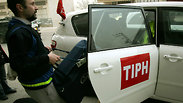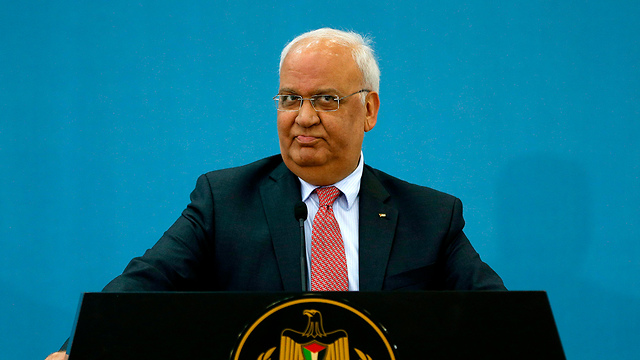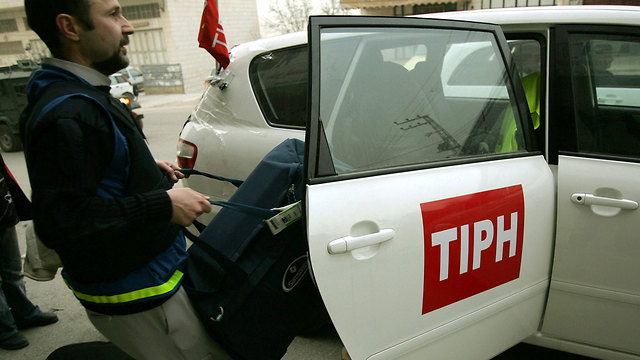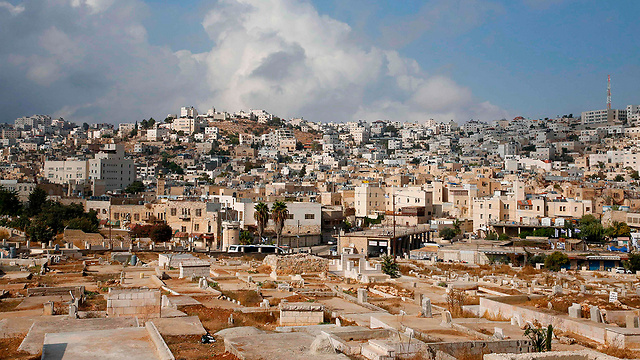
The Palestinian Authority on Tuesday asked the United Nations to deploy a permanent international force in the West Bank and east Jerusalem, after Israel announced it was suspending operations of an observer force that had been in the city of Hebron for more than 20 years.
The U.N. should "guarantee the safety and protection of the people of Palestine" until "the end of Israel's belligerent occupation," said Palestinian official Saeb Erekat. Israel captured the West Bank and east Jerusalem in the 1967 war, and the Palestinian want both to be part of their future state.
Prime Minister Benjamin Netanyahu's office said Monday it would not extend the mandate of the Temporary International Presence in Hebron, saying "we will not allow the continuation of an international force that acts against us."
TIPH has deployed unarmed civilian observers from Norway, Italy, Sweden, Switzerland and Turkey in Hebron since 1997. They report on violations of international humanitarian and human rights laws. Hundreds of Jewish settlers guarded by IDF soldiers live in the heart of the city, which has a population of over 200,000 Palestinians.
TIPH said they have yet to get an official request to leave, but the mayor of Hebron warned of dire consequences if they do.
"This will lead to an escalation of settler attacks and violations of Palestinian human rights by the occupation in these areas," said Tayser Abu Sneineh. "It is clear they (Israel) do not want them to be present to document attacks, especially by settlers who are protected by the army."
Ishay Fleisher, a spokesman for the Jewish community in Hebron, said the force has finished its job and should go home.
"We want a sense of normal life. When you have these foreigners walking around in uniform it's a kind of feeling like they're watching you like you're an animal in a zoo," he said. "TIPH and these kinds of elements actually serve to be the opposite of peacemakers. They become provocateurs."
Professor Eugene Kontorovich, the director of international law at the Kohelet Policy Forum, a conservative think tank in Jerusalem, said the Israeli decision was long overdue.
"TIPH was always designed to be a temporary force -- that is what the T stands for, and why the mandate requires an affirmative decision to extend every three months. It was never meant to be a permanent institution, but diplomatic inertia has kept it in place for over two decades," he said.
There was no immediate U.N. reaction to the Palestinian plea for a new force. But the U.N. human rights office in Geneva said that Israel, as the occupying power, must protect Palestinian civilians from settler violence in the West Bank, decrying an attack in which a Palestinian father of four was killed over the weekend in an incident still under investigation.
Spokesman Rupert Colville said Tuesday that 38-year-old Hamdi Naasan was "shot in the back and killed" in the village of al-Mughayyir near Ramallah. Settlers say they were attacked with stones and knives and the shooting was in response to an attempted kidnapping.
Colville said U.N. staffers reported the shooting after up to 30 Israeli settlers, some of them armed, allegedly attacked Palestinian farmers in their fields and used live ammunition to shoot at villagers and their houses. Colville said about 20 villagers were wounded in the course of the day, amid a recent "surge of settler violence" in the West Bank that he said has reached its highest levels since 2015.
There have been conflicting accounts of Saturday's incident. The settlers say a Jewish man was stabbed by Palestinians and they fired in the air while chasing away the attackers.
The Israeli police and military have launched investigations. The violence came days after Israel charged a Jewish teenager with manslaughter in the death of a Palestinian woman in the West Bank.



















